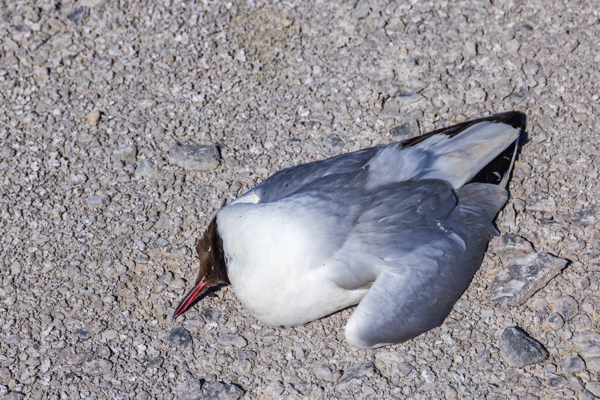 Parler
Parler Gab
Gab
Climate change expedites the spread of the bird flu virus
Both mainstream and independent media also now proliferate the idea that climate change is helping the H5N1 virus to spread and evolve. According to the Conversation, since the virus has already been found on all continents, it is already considered "a global zoonotic animal pandemic" because of its widespread infection in wild birds, poultry and dairy herds. H5N1 is known to be able to infect over 350 species of birds and close to 60 species of mammals. However, there are very few reported human cases of infection. The CDC even admits on its website that the current public health risk is low. The total number of reported human cases in the United States is just four since 2022. There were three exposures to dairy cows reported between April 1 to May 29 while one exposure to poultry was reported on April 28, 2022. Three states in the U.S. have reported cases. But to make the narrative even more "alarming," a new rhetoric is being promoted. The article indicated that climate change seems to be impacting the emergence of zoonotic viruses like H5N1 and as global climate conditions change, avian migratory patterns and routes are also changing. "Higher temperatures and extreme weather have resulted in large-scale population shifts in a range of temperate species. These changes have led to diseases emerging in areas and in genetic configurations entirely unique and unprecedented," the article claimed. "H5N1 is a clear indication that disease monitoring and response efforts are an essential part of any climate change adaptation and mitigation strategy." It also presented that wider seasonal variation is enabling the emergence of novel H5N1 variants, citing that in North America, the warmer winters and earlier onset of spring which global warming is causing could allow some moisture-reliant pathogens to survive and spread more easily. "Cooler and wetter conditions can enhance the survival of influenza viruses in bird droppings and contaminated water," it asserted. "Simply put, the spread of influenza viruses around the globe is dictated by their ability to survive long enough in a place to be able to transmit elsewhere and climate change is, in some cases, making this survival more likely." It also maintained that the recent cases of poultry-to-human and cattle-to-human transmissions underscore the threats posed by these viruses and the importance of understanding how climate change is affecting their spread. Check out Influenza.news for more stories about bird flu.Sources for this article include:
Off-Guardian.org Salon.com TheConversation.com CDC.govU.S. diplomat FOUND DEAD in Kyiv hotel room
By Ava Grace // Share
Russia overtakes U.S. as Europe’s primary gas supplier despite ongoing sanctions
By Zoey Sky // Share
Democrats in full freak-out while the rest of the world marvels at the U.S. presidential freak show
By News Editors // Share
Five states to SUE Pfizer over misleading COVID-19 “vaccine” claims
By Ethan Huff // Share
Unconscious patients are being enrolled in medical experiments without their consent
By Cassie B. // Share
Governments continue to obscure COVID-19 vaccine data amid rising concerns over excess deaths
By patricklewis // Share
Tech giant Microsoft backs EXTINCTION with its support of carbon capture programs
By ramontomeydw // Share
Germany to resume arms exports to Israel despite repeated ceasefire violations
By isabelle // Share










